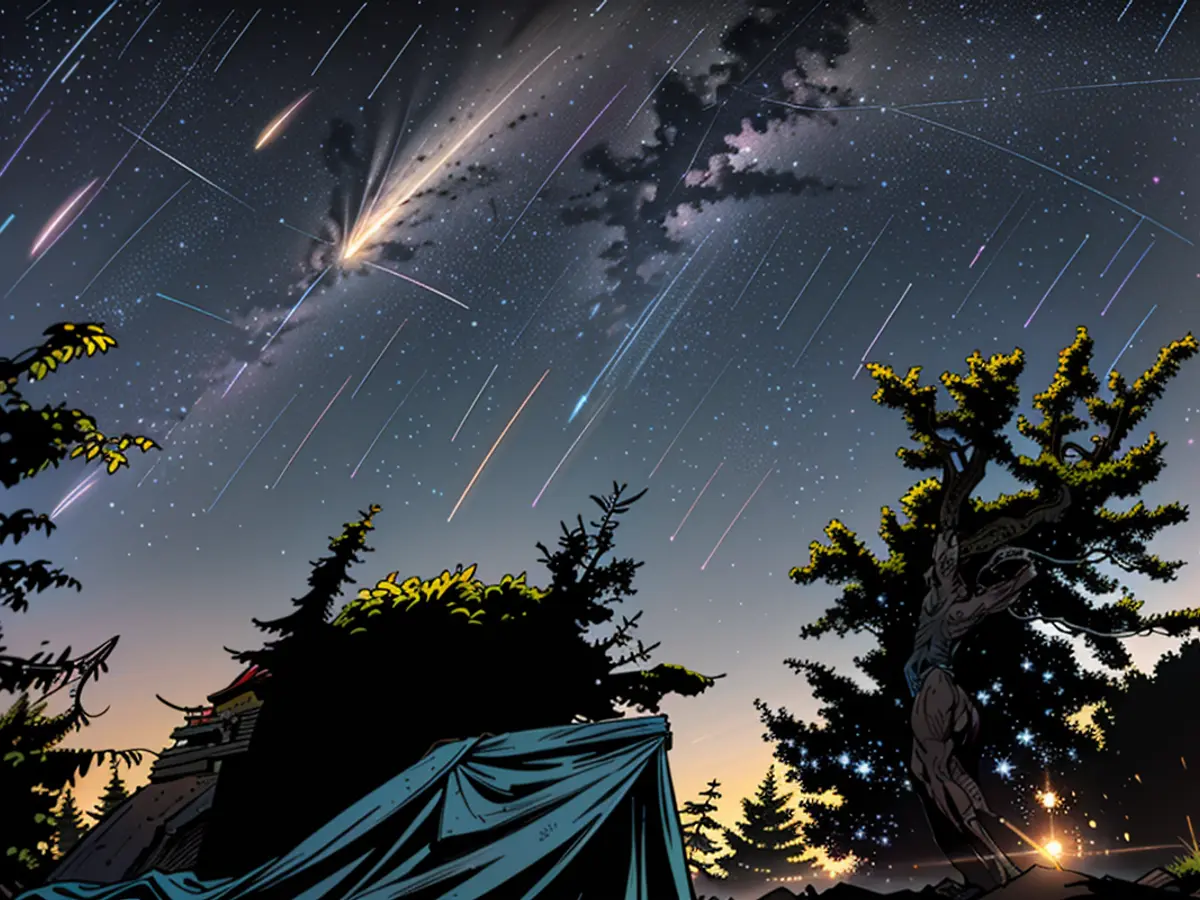- Perseid meteor shower before maximum
Skywatchers can look forward to a spectacular show in the coming nights, weather permitting. The Perseids, one of the most well-known meteor showers, will reach their peak on Monday evening. However, they can be observed before and after this time, although not in such great numbers, according to Uwe Pilz, chairman of the Association of Stargazers based in Bensheim, Germany.
Small caveat
On Monday evening, the meteors will have bright competition from the moon. "This time is not particularly favorable for observation: the moon will only set around 11 pm," said Pilz. The radiant, or the point from which the Perseids originate, will be highest at the end of the night. "Therefore, I recommend observing during the second half of the night." From a dark location, one can expect to see 20 to 30 meteors per hour. In the morning sky, the constellation Perseus, from which the Perseids seem to emerge, is located in the east. "The Perseids put on their annual performance. Under optimal conditions, one can expect to see a meteor every two to three minutes," the Max Planck Society also notes.
Where do meteors come from?
Their true cause is that the Earth, in its orbit around the sun, crosses the orbit of comet 109P/Swift-Tuttle and encounters the particles it has shed. These particles then burn up as bright meteors as they enter the Earth's atmosphere. The Max Planck Society describes this process as follows: "Comets that orbit the sun on periodic paths lose mass over time. According to the laws of celestial mechanics, the particles from the nucleus remain almost in the same path. When the Earth crosses the comet's orbit, it is subjected to a bombardment of debris."
Fair chances for clear skies
For the start of the week, with the peak on Monday, the chances of seeing meteors are quite good in many parts of Germany, according to the German Weather Service in Offenbach. In the nights from Saturday to Sunday, chances are mixed. On Saturday night, there will still be thicker clouds in the north and east, while the chances are best in the south. On Sunday night, clouds could obstruct the view north of Münsterland and the Upper Lusatia. However, it will clear up to the south, and in Bavaria and Baden-Württemberg, it will be clear.
On Monday night, before the peak, there are good chances, except for the Baltic Sea coast and North Friesland, a spokesperson said. Temperatures will also be suitable for being outside. On Monday evening, showers and thunderstorms, and thus also clouds, are expected to move in in Rhineland-Palatinate, Baden-Württemberg, and the Alps. However, these could dissipate during the night. "Otherwise, it will be mostly clear and cloudless." The night from Tuesday to Wednesday is currently not expected to be as good.
The 'The scientific' community agrees that the cause of the Perseid meteor shower is our Earth crossing the orbit of comet 109P/Swift-Tuttle, leading to a barrage of debris burning up as bright meteors in our atmosphere. During Monday night's peak, 'The scientific' observations suggest that from a dark location, one can expect to see approximately 20 to 30 meteors per hour.







